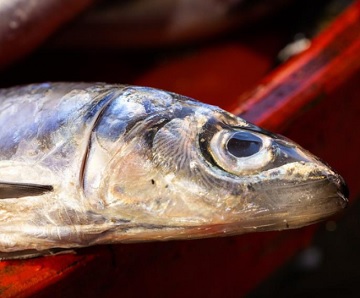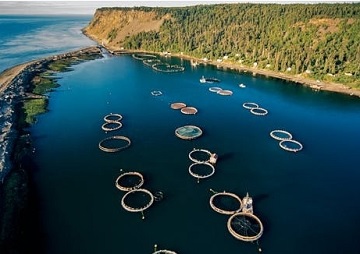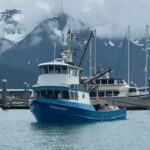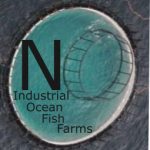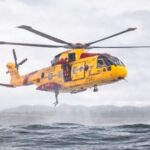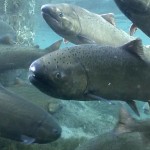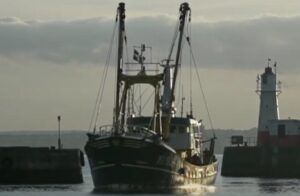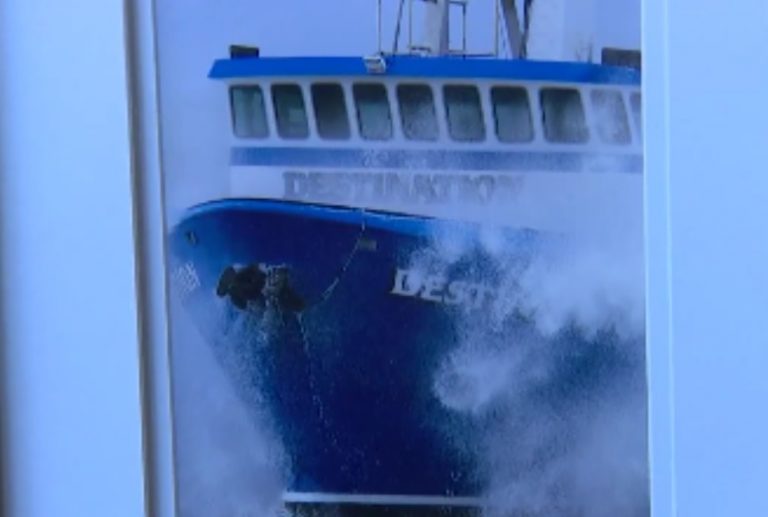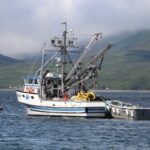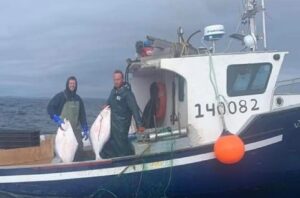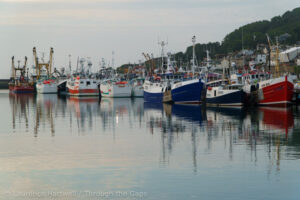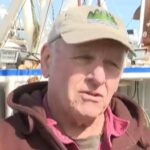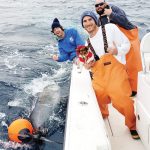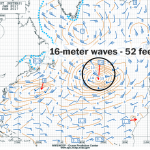Search Results for: Canada
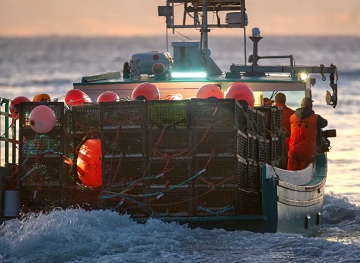
It’s time for Canada to relax fishery closures around right whale sightings, committee says
The standing committee on fisheries and oceans is recommending that the federal government relax the fishing closures it imposes when endangered North Atlantic right whales are sighted in Canadian waters. In a report released Tuesday, the committee said the Department of Fisheries and Oceans Canada should modify its rules for the 2023 season in the Gulf of St Lawrence, Bay of Fundy and Roseway Basin off southern Nova Scotia since most single-whale detections are animals in transit and not staying to feed. It also says season-long closures should rarely be imposed. >click to read< 07:20
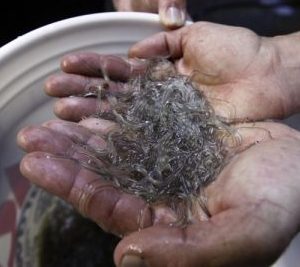
Canada gives Mi’kmaq 14% of lucrative Maritime elver fishery for 2nd year
For a second year, the federal government is giving Mi’kmaw First Nations 14 per cent of the lucrative Maritime fishery for baby eels — or elvers — without compensating commercial licence holders. The transfer implements the Mi’kmaw treaty right to fish for a moderate living, but also sets the stage for further court challenges by commercial elver licence holders. “I’m quite confident that we will be taking legal action based on this again,” said Michel Samson, a lawyer representing Wine Harbour Fisheries. Wine Harbour is one of several licence holders in federal court trying to overturn the 2022 decision, saying it was unfair and rushed. >click to read< 08:59
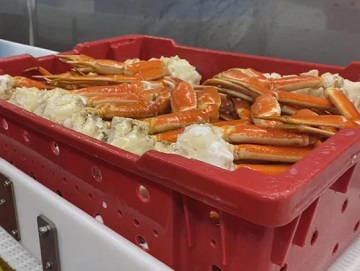
Price outlook diverges for Canada’s top 2 seafoods – Snow crab prices plunged by 60 % in 2022
Canada’s lobster industry is poised to claw its way out of a down year, say analysts, while unsold snow crab stuck in cold storage remains an anchor dragging on the bottom line. Snow crab sales sank and prices plunged 60 per cent in 2022, thanks in part to U.S. consumers who stayed away from luxury seafood as they were battered by inflation. Lobster also took a hit last year, with prices down 30 per cent. The value of Canadian live lobster exports dropped as well, but volumes actually ticked up slightly. Kelly Zhuang of World Link Food Distributors in Nova Scotia says 800 tonnes of live lobster is flown to China from Halifax and Moncton per week. And more charters are expected.>click to read< 13:55
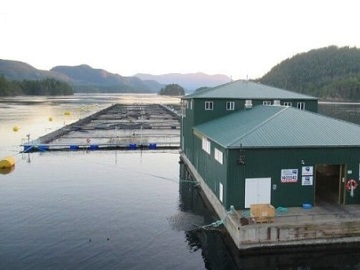
Canada Shuts Down 15 Fish Farms in B.C., Citing Risks to Wild Salmon
After years of concerns over the impact of aquaculture on wild sockeye salmon, Canada’s fisheries department has decided not to renew the operating permits of 15 Atlantic salmon farms in an environmentally sensitive area of British Columbia. In a news release, Fisheries Minister Joyce Murray noted that B.C.’s salmon runs are in “serious, long-term decline,” and some are at risk of collapse if action is not taken. Ten years have passed since the Cohen commission’s report, and more recent research indicates that the diseases associated with salmon-farming may have an impact on wild salmon in general and on Fraser River salmon smolts in particular. >click to read< 16:00
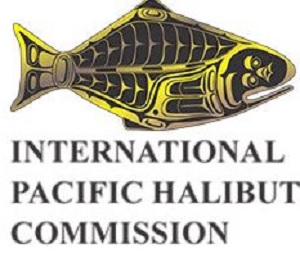
Commission cuts halibut limits across Alaska, Canada
The International Pacific Halibut Commission adopted its annual catch limits for halibut in 2023 from California to the Bering Sea at its meeting Jan. 27. Coastwide, the total constant exploitation yield, a term for how many total halibut longer than 26 inches are removed from the population, regardless of reason, is just shy of 37 million pounds, a 10% drop from 41.2 million pounds last year. Every regulatory area received a cut except for 2A, which covers California, Oregon and Washington. Area 3A, which covers the central Gulf of Alaska, and area 4A, which covers the eastern Aleutians, saw the largest cuts at 17% each. Southeast Alaska only saw a 1% cut, while the western Gulf, western Aleutians and central Bering Sea each saw 6% cuts. The Canadian coast saw a 10.3% cut. >click to read< 11:50
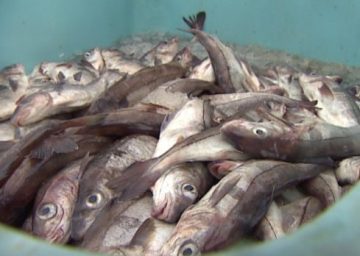
Canada, U.S. fail to reach agreement on quota for shared haddock stock in 2023
Canada and the United States have, for the first time, failed to agree on a shared quota for the transboundary haddock stock on the Georges Bank fishing grounds off southern Nova Scotia. The two countries have jointly managed the haddock fishery and two other straddling stocks, since 2000, but were unable to reach a consensus for the 2023 haddock quota. “While Canada and the U.S. tried to negotiate a shared haddock total allowable catch … our countries will be setting our own total allowable catch independently of the other,” The disagreement centred on the size of the quota cut. >click to read< 07:25

Transport Canada must be ‘more vigilant,’ relatives say two years after N.S. sinking
“My father said, ‘After this trip, this was it,’ because it was quite dangerous,” Michael Francis said during a recent interview at his home in Milton, N.S., a few weeks before the second anniversary of the sinking of the Chief William Saulis. The bodies of Eugene (Geno)Michael Francis, Aaron Cogswell, Leonard Gabriel, Dan Forbes and captain Charles Roberts were never recovered after the 17-metre vessel capsized on Dec. 15, 2020, just off Delaps 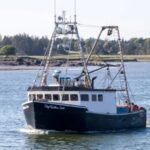 Cove, about 50 kilometres north of Digby, N.S. The body of crew member Michael Drake was swept up on the rocky shoreline. Two years later, Francis and Lori Phillips, the mother of Cogswell, say Dec. 15 is a date that provokes painful memories, unanswered questions and frustration over a Transportation Safety Board investigation that still hasn’t officially delivered its findings. >click to read< 08:43 >Search Results for Chief William Saulis<
Cove, about 50 kilometres north of Digby, N.S. The body of crew member Michael Drake was swept up on the rocky shoreline. Two years later, Francis and Lori Phillips, the mother of Cogswell, say Dec. 15 is a date that provokes painful memories, unanswered questions and frustration over a Transportation Safety Board investigation that still hasn’t officially delivered its findings. >click to read< 08:43 >Search Results for Chief William Saulis<

Fisheries minister pushes for joint Canada-U.S. management of depleted Atlantic mackerel stock
“We don’t support the fact that we had closures because the stock was in critical condition and the United States were fishing essentially that same stock,” Canada’s Fisheries and Oceans Minister Joyce Murray told a parliamentary committee Friday. Murray’s remarks are a more public stance on what has been a quiet effort by Canada to persuade the United States to jointly manage a species both countries say is in trouble. Murray said she expressed her concerns in a virtual meeting earlier on Dec. 2 with her U.S. counterpart, Richard Spinrad, who leads the National Oceanic and Atmospheric Administration or NOAA. “He wants to invoke the precautionary principle, which in my view, wasn’t happening adequately. We agreed that we share our approach to this and in two months there will be meetings between NOAA and DFO to discuss our assessments and build a better approach to rebuilding mackerel.” >click to read< 10:03

Canada, U.S., Mexico to vote on investigation into U.S. efforts to protect right whales
A complaint, filed under the new North American free trade agreement, will force Canada, the U.S., and Mexico to pass judgment on efforts by the United States to protect North Atlantic right whales. “We recommended an independent investigation. We are looking forward to hearing a response and the position from the governments,” Paolo Solano, legal director for the Commission for Environmental Cooperation, said in Halifax this week. The commission is mandated under the Canada-U.S.-Mexico Agreement (CUSMA) to investigate claims a country is failing to effectively enforce its environmental laws. Last year, an American environmental group, Oceana, filed a complaint against the United States about protections for the North Atlantic right whale. >click to read< 07:51
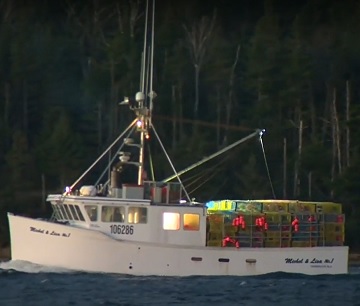
Opening days delayed for Canada’s largest and most lucrative lobster fisheries
The opening days for two of Canada’s largest and most profitable lobster fisheries have been delayed because of bad weather. The federal Fisheries Department says it is delaying by one day — to Tuesday — the opening of Lobster Fishing Area 33, which extends from Cow Bay in Halifax County south to Port La Tour, in Shelburne County. Meanwhile, the department has yet to announce the opening day for Lobster Fishing Area 34, which extends from Shelburne County around to the southwest coast of the province, because Environment Canada is forecasting gale conditions into Tuesday. Video, >click to read< 14:10
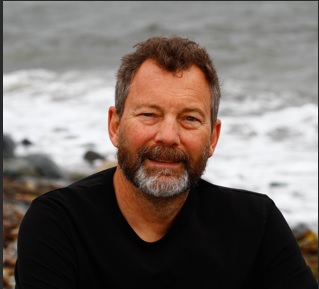
Canada’s efforts to rebuild depleted fish stocks are flopping, says ENGO Oceana
Major spending increases and policy changes by the federal government to protect and rebuild wild fish stocks in Canada have resulted in little improvement, according to the 2022 Fishery Audit released this week by environmental group Oceana Canada. In its sixth annual audit, Oceana says fewer than one third of wild marine fish stocks in Canada are considered healthy and most critically depleted stocks lack plans to rebuild them. The audit assessed 194 fish stocks in Canada. The audit says 72 per cent of DFO’s management documents do not formally consider climate change and that needs to change. >click to read< 12:33
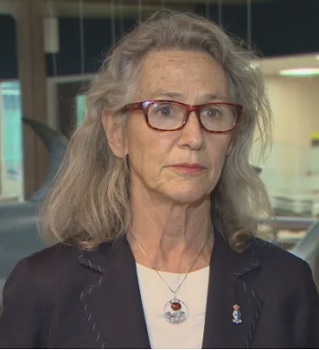
Canada proposes 62 fish stocks for sustainability protection
The Department of Fisheries and Oceans has proposed adding 62 stocks to a regulatory list that binds the minister to rebuild them if they become depleted. In April the first batch of 30 was added. On Oct. 19 the department released a second batch of 62 stocks for public consultation. Comments close Dec. 19. Most stocks in the second batch are considered healthy, but candidates also include three stocks in trouble: cod and herring off southern Nova Scotia and yellowtail flounder in the Gulf of St Lawrence. Speaking to an Oceana conference on restoring fish populations in Ottawa last week Fisheries Minister Joyce Murray pledged to work toward that goal. >click to read< 10:07
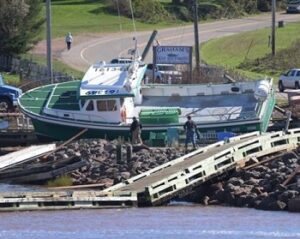
Ottawa earmarks $100 million for lost fishing gear, repair to harbours – $300-million fund for Atlantic Canada not enough, fishermen say
The federal government says $100 million from its hurricane Fiona fund will be earmarked for the recovery of lost fishing gear and the repair to small-craft harbours across Atlantic Canada and eastern Quebec. The federal Fisheries Department says in a news release the money will come from the $300 million Ottawa set aside for fishers, communities and companies affected by post-tropical storm Fiona, which made landfall on Sept. 24. >click to read< $300-million fund for Atlantic Canada not enough, fishermen say – Fishermen on P.E.I. say the federal government’s $300-million fund for Atlantic Canada is a good start to recover from post-tropical storm Fiona but falls far short of what is needed. It will cost millions just to fix the wharf at Covehead Harbour alone, said Allan Coady. >click to read< 09:26
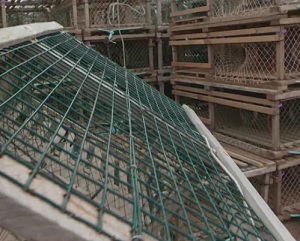
Atlantic Canada: Lobster fishery hoping for federal $$ to recover gear lost to Fiona
A plan is in the works to try to retrieve potentially thousands of lobster traps that were lost during post-tropical storm Fiona nearly two weeks ago. The storm, which battered Atlantic Canada with high winds and storm surges, resulted in tens of thousands of traps being damaged and lost in the Northumberland Strait, where fishermen in southeastern New Brunswick and northwestern Prince Edward Island are currently fishing. Luc LeBlanc, a fisheries adviser with the Maritime Fishermen’s Union, said while many traps have been recovered since the storm, “a few thousand” are still missing, and a plan is being worked out to find them and bring them ashore once the lobster season ends on Oct. 12. >click to read< 10:05

Canada is doing its part to protect right whales
Since 2017, the Canadian lobster industry feels like it’s been trapped in a “South Park” episode. There has been a steady drumbeat eager to “Blame Canada” for the plight of North Atlantic right whales. Right whales were rarely observed in the Gulf of St. Lawrence until recently. All that changed in 2017 when a large number unexpectedly moved to the Gulf. Tragically, we lost 17 right whales: 12 in Canadian waters and five in the United States. Two of the 12 Canadian fatalities were found to be caused by crab gear entanglements. Our Maine peers have made huge strides and sacrifices in recent years to protect right whales. Canada has also been leading the way, with the most aggressive management measures in the world. >click to read< By Geoff Irvine and Nat Richard 15:55
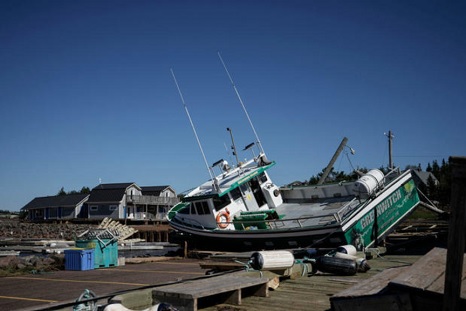
Body found as Canada struggles to restore power after storm – ‘Everything is unusable’
Hundreds of thousands of people in Atlantic Canada remained without power Sunday and officials said they found the body of a woman swept into the sea after former Hurricane Fiona washed away houses, stripped off roofs and blocked roads across the country’s Atlantic provinces. After surging north from the Caribbean, Fiona came ashore before dawn Saturday as a post-tropical cyclone, battering Nova Scotia, Prince Edward Island, Newfoundland and Quebec with hurricane-strength winds, rains and waves. >click to read<
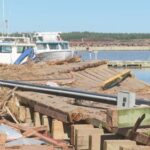 ‘Everything is unusable’: Fishers, farmers assess damage as Fiona wreaks havoc on industry – Officials have said areas exposed to storm surges have seen the most severe damage from the storm. In Morell, the Red Head Harbour wharf was almost completely totalled. Ken Drake was one of the fishers who spent Friday night there keeping an eye on their boats. He said all the boats have at least some damage. >click to read< 08:05
‘Everything is unusable’: Fishers, farmers assess damage as Fiona wreaks havoc on industry – Officials have said areas exposed to storm surges have seen the most severe damage from the storm. In Morell, the Red Head Harbour wharf was almost completely totalled. Ken Drake was one of the fishers who spent Friday night there keeping an eye on their boats. He said all the boats have at least some damage. >click to read< 08:05
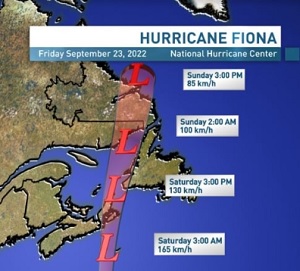
Hundreds of thousands without power in Atlantic Canada as Fiona makes landfall
Hundreds of thousands of customers in eastern Canada are without power as post-tropical storm Fiona brings intense, hurricane-strength winds and torrential rains to swaths of Nova Scotia, Prince Edward Island, New Brunswick and Quebec’s Magdalen Islands. Fiona made landfall in Nova Scotia shortly after 4 a.m. AT between Canso and Guysborough. >click to read< – New Brunswick – While the eye of the storm is well east of the province, post-tropical storm Fiona is causing widespread power outages through much of New Brunswick. >click to read< – Prince Edward Island – Tens of thousands of Maritime Electric customers are without power in P.E.I. as Fiona passes through the region, with wind gusts hitting 150 km/h and almost 100 mm of rain down. >click to read< – Nova Scotia – Hundreds of thousands of customers in Eastern Canada are without power as post-tropical storm Fiona brings intense, hurricane-strength winds and torrential rains to swaths of Nova Scotia, Prince Edward Island, New Brunswick and Quebec’s Magdalen Islands. >click to read< – Newfoundland – Homes lost, residents flee as Hurricane Fiona approaches Newfoundland. >click to read< 08:40
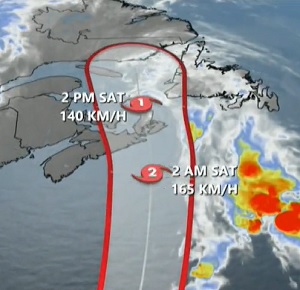
Hurricane Fiona threatens severe impacts across Atlantic Canada
Hurricane Fiona is roaring through the western Atlantic Ocean as a powerful Category 4 storm. The hurricane will brush Bermuda overnight Thursday before threatening major impacts across a large portion of Atlantic Canada. This is already a deadly hurricane. Five people died after Fiona produced devastating flooding across Puerto Rico as the storm traversed the Caribbean Island. Summer’s final sunset saw a powerhouse of a storm in Hurricane Fiona. The U.S. National Hurricane Center (NHC) found the storm had maximum sustained winds of 215 km/h on Wednesday evening. Some additional strengthening is forecast through Wednesday night, with some fluctuations in intensity possible on Thursday. Forecasters are keeping a close eye on potential impacts across Atlantic Canada for this weekend. Video, images, >click to read< 10:56
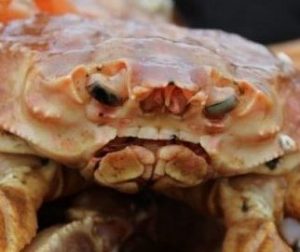
Atlantic Canada snow crab sales slowed to a crawl in 2022 according to latest export data
In 2021 crab fishing crews landed just over 39,000 metric tonnes. With an average price of $7.36 per pound the landed value that season was $623 million. There were expectations that N.L. harvesters might land a billion dollars’ worth of crab in 2022, thanks to record high prices of $7.60 at the start of the season, and DFO’s decision to increase the overall quota by 32 percent. However, global financial uncertainty precipitated by the Russian invasion of Ukraine, the end of virus economic stimulus packages in the United States and rising interest rates, lead to consumers scratching high priced seafood from their grocery lists. Just over a month into the season snow crab prices plummeted. >click to read< 12:37
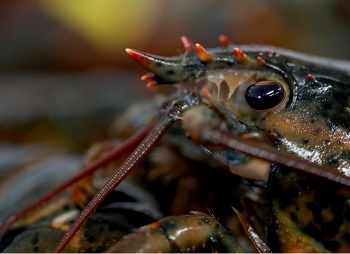
Canada and Nova Scotia help support adoption of new and improved on-board lobster handling/holding technologies
On behalf of the Honourable Joyce Murray, Minister of Fisheries, Oceans and the Canadian Coast Guard, the Honourable Sean Fraser, Minister of Immigration, Refugees and Citizenship and Member of Parliament for Central Nova, and the Honourable Steve Craig, Nova Scotia Minister of Fisheries and Aquaculture, announced a total contribution of over $400,000 to help the Maritime Fishermen’s Union deliver a project to its members that will improve the quality, vitality and value of harvested lobster. This funding will help the lobster fishery in the Southeastern Northumberland Strait, Eastern Cape Breton and Southwest Nova Scotia improve the quality of lobster being marketed, the efficiency of fishing activities, and the onboard safety of crew. Live-well systems, which measure water quality, will be installed or upgraded on vessels. >click to read< 13:16
Funding announced to help support quality of harvested lobster – >click to read<
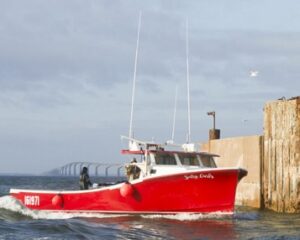
Atlantic Canada makes strides to decarbonize commercial marine vessels
Nova Scotia and Prince Edward Island, with federal government support, are currently investigating opportunities to electrify certain classes of vessels in an effort to help decarbonize the marine transportation sector. Next spring, the Prince Edward Island Fishermen’s Association (PEIFA) is planning to launch a pilot project to test different energy-efficient vessel propulsion systems, such as electric, hybrid or alternative fuels, for nine of the PEIFA’s inshore lobster fishing vessels. With combined funding of $3 million provided by both the federal and provincial governments, distributed through the Atlantic Fisheries Fund, the PEIFA is at the preliminary stages of developing the pilot. >click to read< 07:49
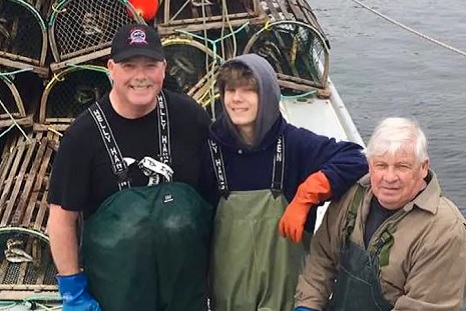
Regulations coming to Atlantic Canada could ensure safety of endangered right whales
Last month, Sierra Club Canada held a web discussion where it talked about the endangered North Atlantic right whale population in the Gulf of St. Lawrence and how new changes coming to the fishing industry could help protect them. DFO has been working to develop rope systems that are designed to release if too much force is applied suddenly. Currently, there are no regulations for fisherman to use low-bearing gear. Jenn Michael Lewis, who helps catch lobster in St. Peters Bay, said the response from fishermen in the community about the new rope regulations will likely be a negative one. “It has been a point of tension. There isn’t many right near St Peters Bay, many fishermen don’t see the point in switching,” Lewis said. >click to read< 08:10
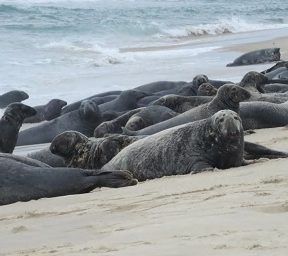
DFO: Atlantic Canada Grey Seal population is slowing
The grey seal population in Atlantic Canada continues to grow and is now estimated at 366,000, according to the 2021 stock assessment released Thursday by the Department of Fisheries and Oceans. But DFO says the population is growing at a much slower rate than in previous years and for the first time in 60 years it is believed pup production has decreased on Sable Island. Scientists used a new model to estimate the population in the latest report. It converted pup production numbers from aerial surveys to total population by combining reproductive and survival rates with the small number harvested by humans. Applying the new modelling to its 2016 estimate produced a sharply lower result. >click to read< 13:44
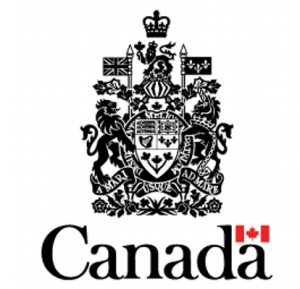
Commercial fishing deaths in Canada hit 20-year high
Despite improvements in safety training and awareness, commercial fishing remains one of the most dangerous professions in Canada. The Transportation Safety Board of Canada reports that 45 workers died between 2018 and 2020, the highest three-year total in 20 years. And fishing safety has been on the board’s watchlist of important safety matters since 2010. But fishing fatalities are preventable. The Transportation Safety Board also reports that 29 workers died between 2015 and 2021 after their boats capsized or sank without personal floatation devices or distress-alerting devices. “You’ve got to be prepared for the worst-case scenario, and that’s where we see that they’re not prepared,” said Glenn Budden. >click to read< 19:03

Transport Canada – DFO issuing fishing licences in N.L. without checking boat registrations
An investigation into a fatal 2020 fishing accident in Newfoundland has prompted the Transportation Safety Board to call on the federal Fisheries Department to change the way it issues fishing licences. The board is asking the department to ensure all Canadian commercial fishing vessels are registered with Transport Canada before issuing fishing licences. Safety board chair Kathy Fox said Wednesday that an investigation into the sinking of a crab fishing boat that killed four men revealed that more than 4,000 fishing vessels in Newfoundland and Labrador were registered with the Fisheries Department but not with Transport Canada. > click to read < 12:01
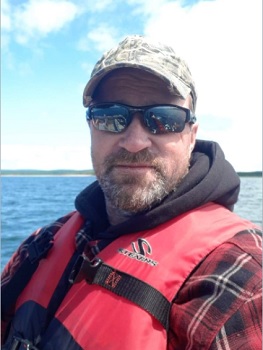
Will Atlantic Canada lobster season break another sales record? Or will inflation curb consumer appetite,,,
Roger Fowlow is paying a lot of attention to the long-range marine forecast these days. Lobster season opens soon and he’s hoping the unsettled spring weather will ease off, giving him light winds to set his lobster pots. He used to catch cod, but with quotas so low, cod prices stalled for years at less than a dollar a pound, and fuel prices soaring this year. He said it’s not worth bothering with. Lobster is the money maker, and the last few years have given him good catches and good prices. Fowlow is confident of good catches again this year. But on the question of the price he might get paid, he’s not so certain. For P.E.I. lobster fisher Bethany McCarthy, inflation is already driving up the cost of running her boat. In addition to higher prices for fuel, she’ll have to shell out more money for bait this year, thanks to DFO’s decision to kill the mackerel fishery. photos, video, >click to read< 12:15
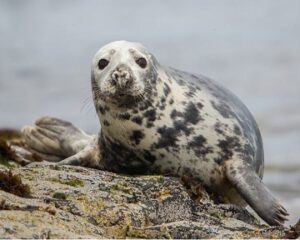
Why Canada shuttered some mackerel and spring herring fisheries in Québec and Atlantic Canada
The announcement by the Department of Fisheries and Oceans to suspend fishing for Atlantic mackerel and spring herring in the southern Gulf of St. Lawrence made waves as the fishing season opened. This decision will have repercussions on the fishing industry at several levels since these species are fished not only for commercial purposes, but are also used as bait in the lobster, snow crab and Atlantic halibut fisheries. The latest stock assessment of Atlantic mackerel and spring herring in the southern Gulf of St. Lawrence revealed high mortality rates among adult fish. In addition to high fishing pressure, the natural mortality of fish by predation also increased rapidly, The grey seal, now 16 times more abundant than in the 1960s, is the main predator of herring. >click to read< 18:38







